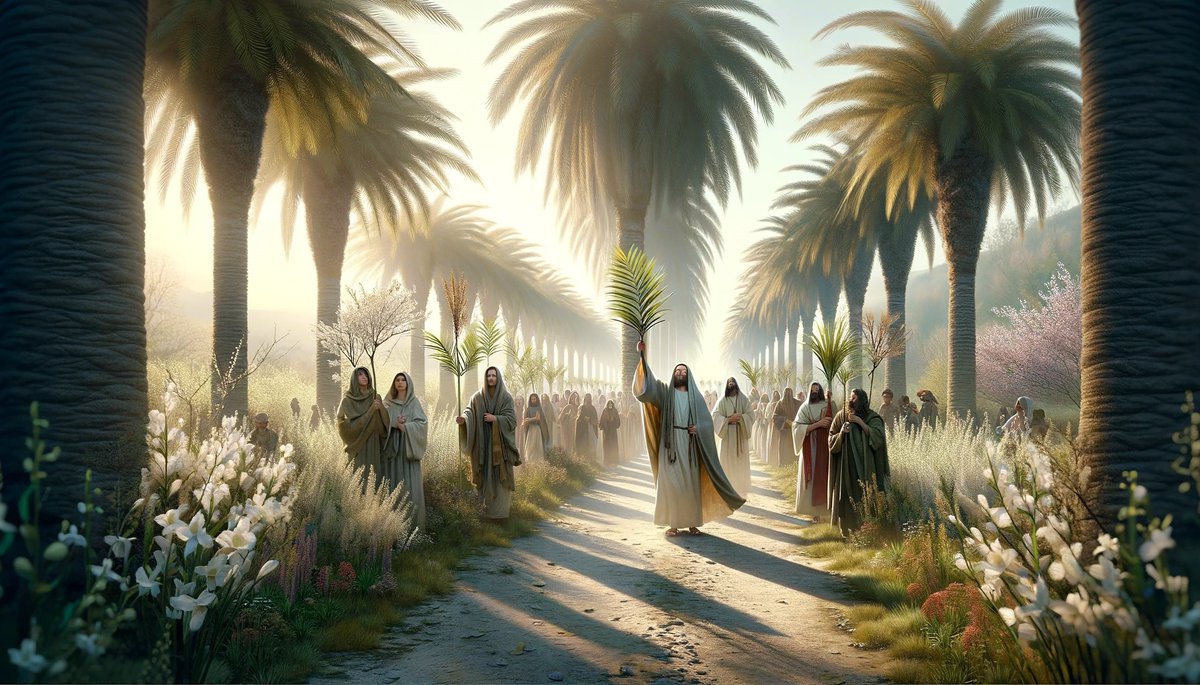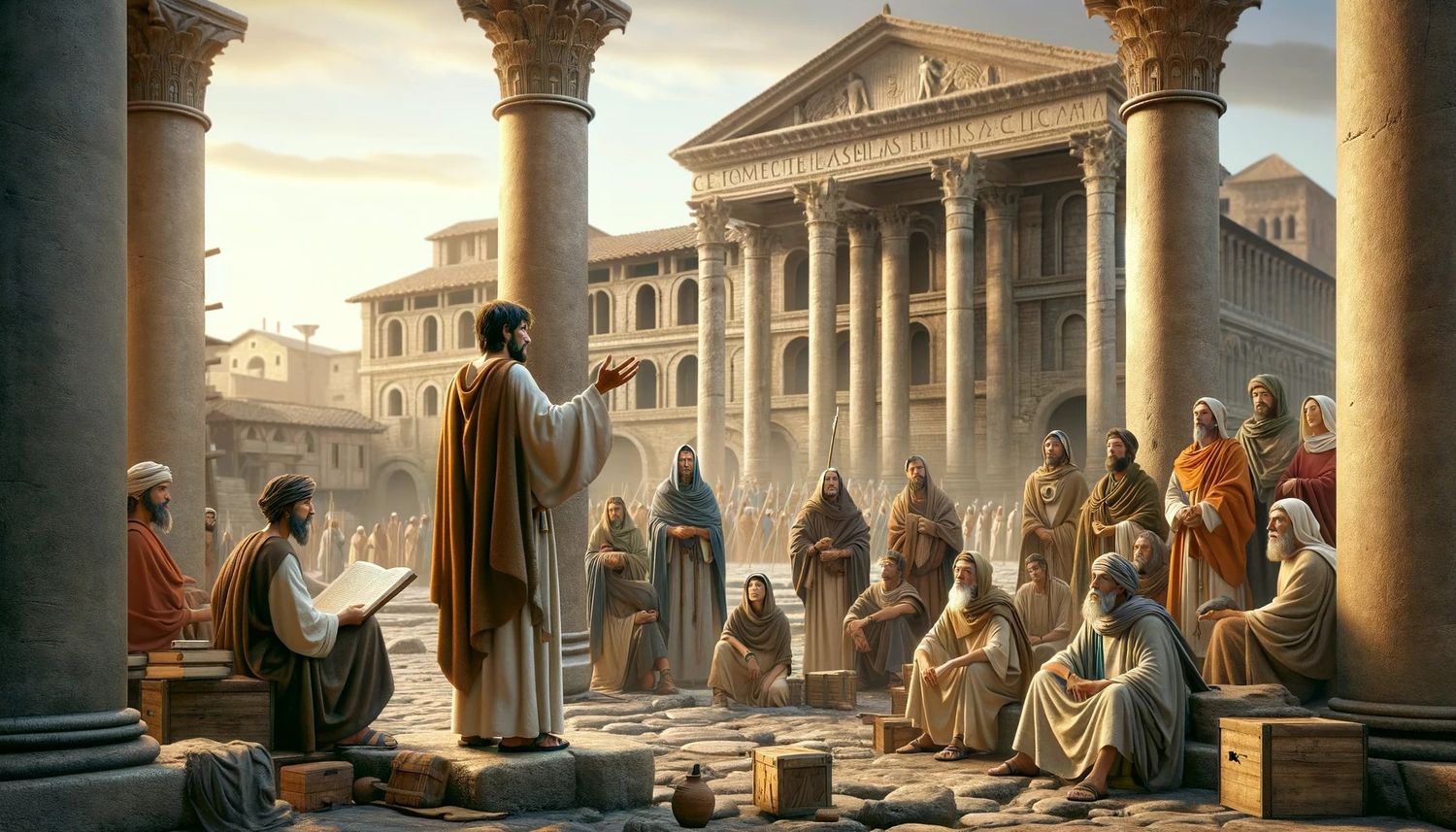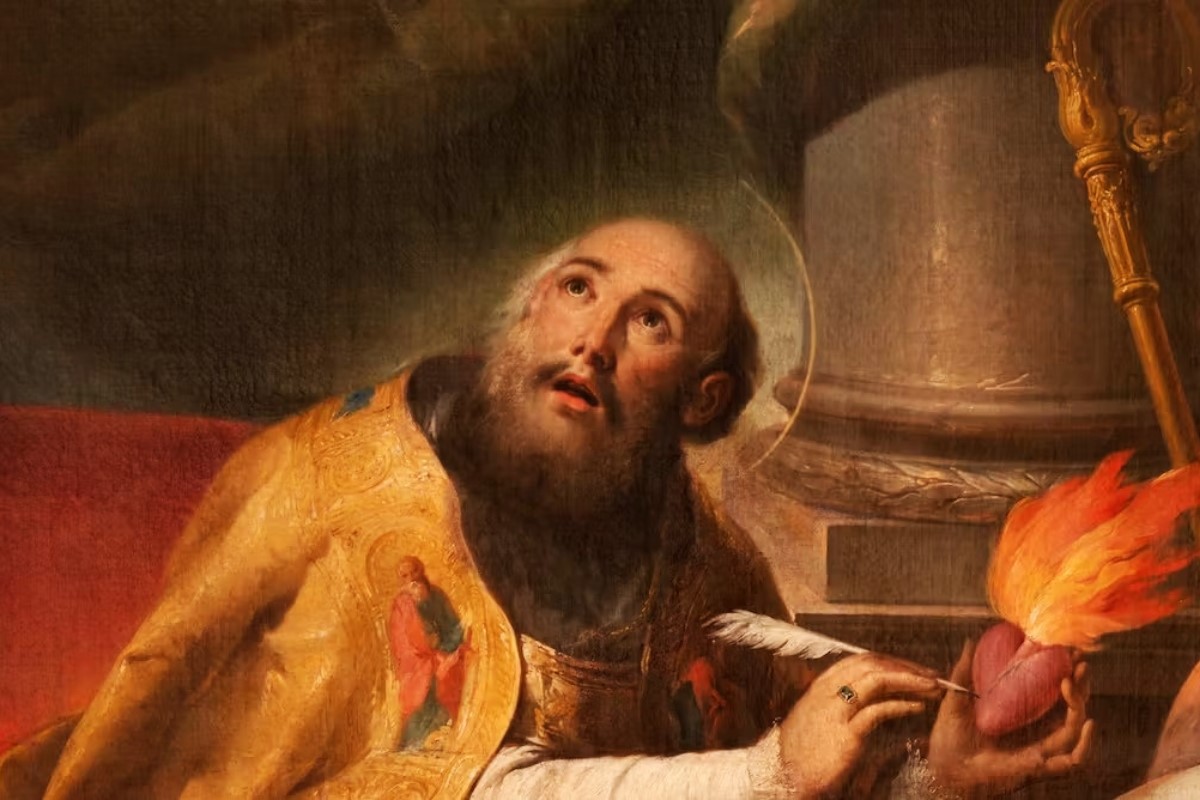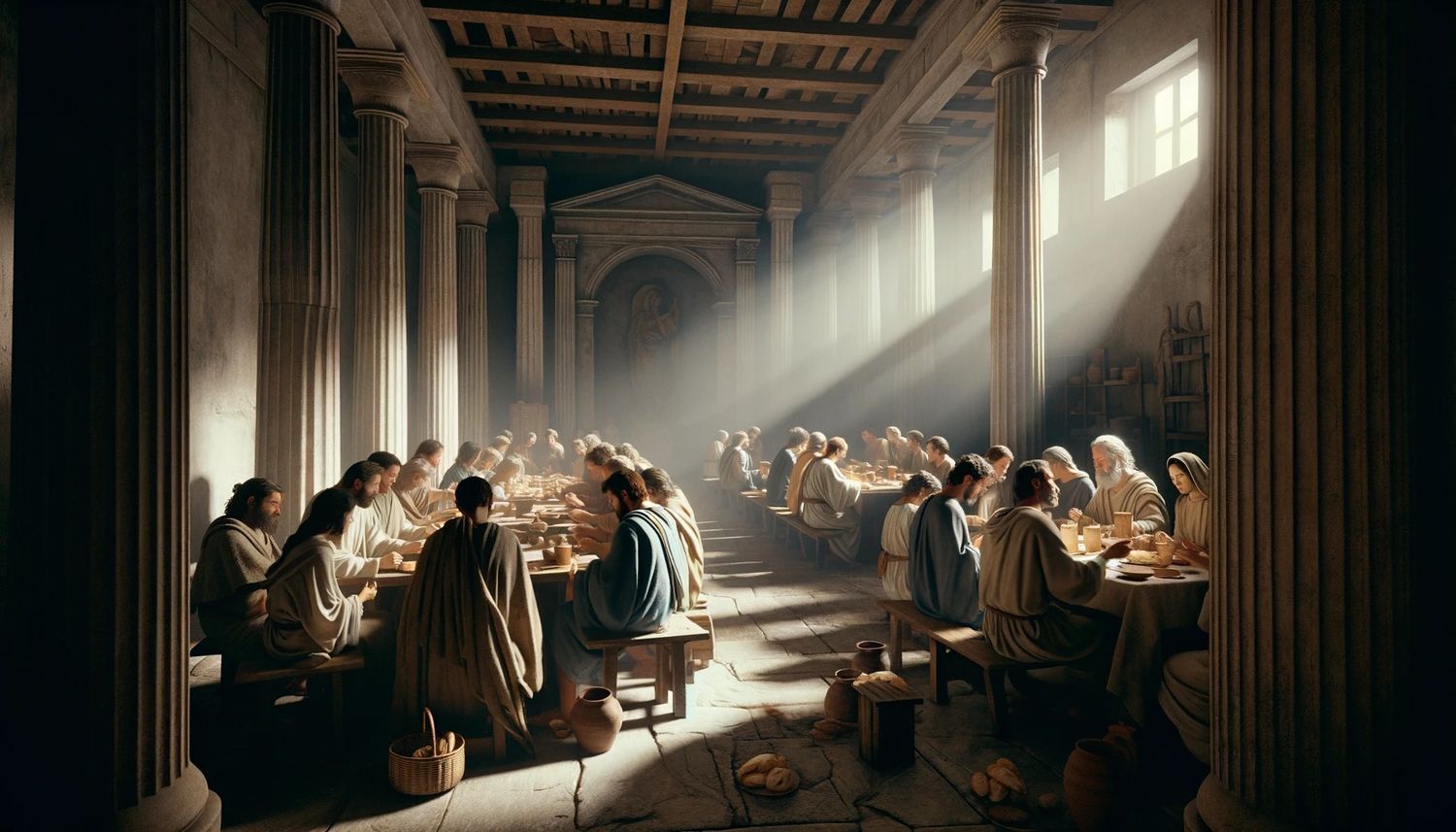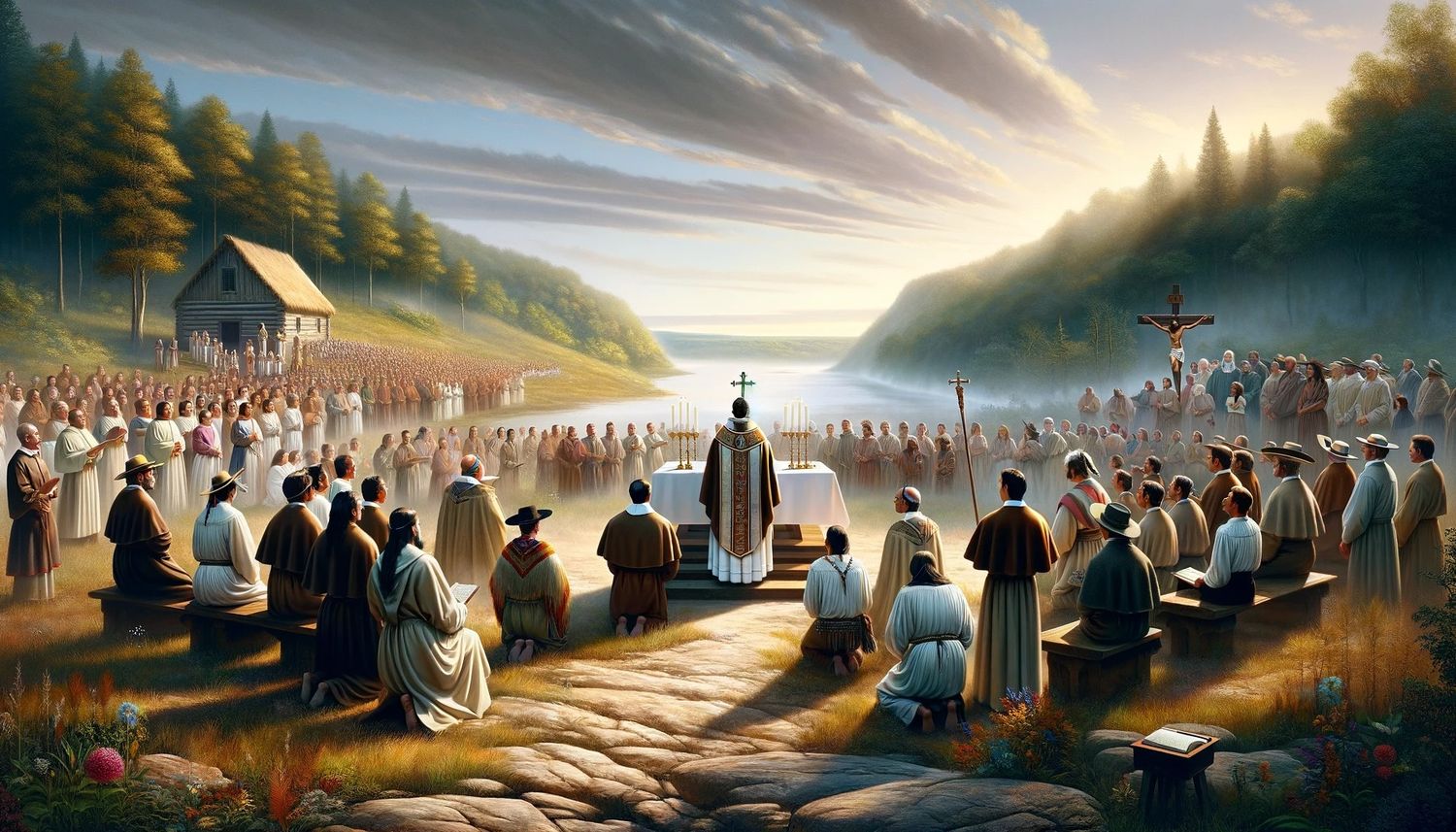Home>Arts and Culture>When Did Isaac Watts’ Hymns And Spiritual Songs Come To Us


Arts and Culture
When Did Isaac Watts’ Hymns And Spiritual Songs Come To Us
Published: March 7, 2024
Jason DeRose, Managing Editor at Christian.net, uses his expertise in religion and journalism to deepen understanding of faith's societal impacts. His editorial leadership, coupled with a strong academic background, enriches the platform’s diverse content, earning him recognition in both journalism and religious circles.
Discover the history and impact of Isaac Watts' hymns and spiritual songs in the arts and culture. Explore their enduring legacy and influence.
(Many of the links in this article redirect to a specific reviewed product. Your purchase of these products through affiliate links helps to generate commission for Christian.net, at no extra cost. Learn more)
Table of Contents
Introduction
When did Isaac Watts' hymns and spiritual songs come to us? This question delves into the history of religious music and the impact of Isaac Watts, a prolific hymn writer, on the Christian worship tradition. Exploring the journey of his hymns from their creation to their enduring presence in modern worship settings provides insight into the evolution of religious music and its significance in the lives of believers. Let's embark on a journey through time to uncover the story behind Isaac Watts' timeless contributions to Christian hymnody.
Read more: Where And When Did Hymns Begin
The Life of Isaac Watts
Isaac Watts, born in 1674, was a renowned English Christian minister, hymn writer, theologian, and logician. Despite facing significant challenges due to his fragile health, Watts displayed remarkable intellectual prowess from a young age. His passion for literature and music was evident early on, and he demonstrated a gift for composing poetry and hymns. As a nonconformist, Watts faced religious restrictions in England, which influenced his decision to pursue a career in the church. His commitment to the Christian faith and his desire to contribute to worship through music and poetry laid the foundation for his enduring legacy in religious hymnody.
Watts' early years were marked by a deep engagement with the Bible and a profound love for the Psalms. His exposure to the Psalms significantly influenced his approach to hymn writing, leading him to adapt the Psalms into hymn form. This innovative approach revolutionized congregational singing, as it departed from the exclusive use of biblical texts in worship. Watts' hymns, characterized by their emotional depth, theological richness, and accessibility, resonated with worshippers and clergy alike, cementing his reputation as a trailblazer in hymn composition.
Despite facing opposition and criticism for his departure from traditional psalmody, Watts remained steadfast in his commitment to enriching Christian worship through his hymns. His unwavering dedication to theological accuracy and poetic excellence set a new standard for hymn writing, inspiring future generations of composers and worship leaders. Watts' profound impact on the hymnody of the Christian church is a testament to his enduring influence and the timeless relevance of his musical and literary contributions.
Watts' legacy extends beyond his hymnody, as he was also a respected theologian and philosopher. His writings on theology and logic earned him recognition as a significant figure in religious scholarship. His commitment to the Christian faith, coupled with his intellectual pursuits, exemplifies the depth of his contributions to both religious and academic spheres. Watts' life and work continue to inspire and resonate with individuals who value the intersection of faith, intellect, and artistic expression.
The Creation of Hymns and Spiritual Songs
Isaac Watts' journey as a hymn writer began with a desire to provide a fresh musical expression for Christian worship. His dissatisfaction with the exclusive use of metrical psalms in congregational singing prompted him to embark on a groundbreaking endeavor: the composition of original hymns and spiritual songs. Watts sought to create hymns that not only conveyed profound theological truths but also resonated with the hearts of worshippers. His commitment to crafting emotionally compelling and doctrinally sound hymns set him apart as a visionary in the realm of Christian music.
Watts' hymn writing process was deeply rooted in his reverence for the Scriptures and his profound understanding of theological principles. Drawing inspiration from biblical passages and Christian doctrine, he skillfully crafted verses that encapsulated the essence of faith and devotion. His hymns, such as "When I Survey the Wondrous Cross" and "Joy to the World," exemplify his ability to infuse profound spiritual insights into poetic and melodic compositions. By blending theological depth with poetic beauty, Watts succeeded in creating hymns that transcended mere musical accompaniment and became vehicles for spiritual reflection and worship.
In addition to his original compositions, Watts also reimagined numerous psalms, adapting them into hymn form to make them more accessible to congregations. This innovative approach to hymnody revolutionized the landscape of Christian worship, paving the way for a broader repertoire of hymns that spoke directly to the experiences and aspirations of believers. Watts' commitment to inclusivity and emotional resonance in congregational singing contributed to the diversification of musical expression within Christian worship, enriching the spiritual lives of worshippers across denominational boundaries.
Watts' creative process was characterized by a profound sense of purpose and a deep understanding of the power of music to convey spiritual truths. His hymns and spiritual songs continue to inspire and uplift individuals, serving as timeless expressions of faith and devotion. The enduring legacy of Watts' hymnody stands as a testament to his unparalleled contributions to the tapestry of Christian worship, reflecting his unwavering dedication to crafting music that transcends generations and resonates with the human spirit.
The Impact of Watts' Hymns on Worship
-
Diversification of Musical Expression: Watts' hymns played a pivotal role in diversifying the musical expression within Christian worship. By introducing hymns that went beyond the traditional psalms, he expanded the repertoire of songs available for congregational singing. This diversification enriched the worship experience, allowing worshippers to engage with a broader range of musical styles and lyrical themes.
-
Emotional Resonance: One of the most significant impacts of Watts' hymns was their ability to resonate emotionally with worshippers. His compositions delved into the depths of human experience, addressing themes of faith, redemption, and the Christian journey. By capturing the emotional nuances of the Christian life, Watts' hymns provided a profound avenue for worshippers to express their devotion and connect with the spiritual dimensions of their faith.
-
Theological Depth: Watts' hymns contributed to the enrichment of theological understanding within congregational worship. Through his poetic and lyrical craftsmanship, he conveyed profound theological truths in a manner that was accessible to all. This accessibility allowed worshippers to engage with complex theological concepts in a way that was both meaningful and memorable, deepening their understanding of the Christian faith.
-
Enduring Legacy: The impact of Watts' hymns on worship is evidenced by their enduring legacy. Centuries after their composition, his hymns continue to be sung in churches around the world, transcending cultural and denominational boundaries. Their enduring popularity speaks to the timeless relevance and impact of Watts' musical and literary contributions to Christian worship.
-
Influence on Worship Practices: Watts' hymns influenced worship practices by setting a new standard for congregational singing. His emphasis on congregational participation and emotional engagement reshaped the way worship was conducted, emphasizing the importance of active involvement and heartfelt expression. This influence continues to shape contemporary worship practices, highlighting the enduring impact of Watts' hymns on the worship traditions of the Christian church.
-
Inspiration for Future Generations: The impact of Watts' hymns extends to their role as a source of inspiration for future generations of hymn writers and composers. His innovative approach to hymnody and his ability to blend theological depth with poetic beauty have set a precedent for aspiring musicians and worship leaders. The influence of his hymns continues to reverberate through the works of contemporary composers, ensuring that his impact on worship extends far into the future.
-
Unity in Worship: Watts' hymns have contributed to fostering a sense of unity in worship, bringing together diverse congregations through shared musical experiences. Regardless of denominational affiliations, worshippers from various backgrounds have found common ground in the singing of Watts' hymns, creating a unifying thread that transcends theological differences and cultural barriers.
The impact of Watts' hymns on worship is multifaceted, encompassing emotional, theological, and cultural dimensions. His enduring influence on congregational singing and the worship experience underscores the profound significance of his contributions to the musical and spiritual tapestry of the Christian church.
The Journey of Watts' Hymns to the Present Day
The journey of Isaac Watts' hymns from their creation to their enduring presence in modern worship settings is a testament to their timeless impact on the Christian church. Despite being penned centuries ago, Watts' hymns continue to resonate with worshippers around the world, transcending temporal and cultural boundaries. The enduring journey of his hymns to the present day reflects their unwavering relevance and significance in the landscape of Christian worship.
-
Continued Singing in Churches: Watts' hymns have maintained a steadfast presence in church hymnals and worship services. Congregations across denominations continue to sing beloved hymns such as "When I Survey the Wondrous Cross" and "O God, Our Help in Ages Past," keeping alive the rich musical and theological heritage that Watts bequeathed to the church.
-
Adaptation to Contemporary Music: While retaining their original lyrical and melodic essence, Watts' hymns have also been adapted into contemporary musical styles. Modern arrangements and orchestrations have breathed new life into these timeless compositions, allowing them to resonate with diverse musical preferences and worship expressions.
-
Influence on Christian Recordings: Watts' hymns have left an indelible mark on the landscape of Christian recordings. Numerous artists and worship bands have incorporated his hymns into their albums, infusing them with fresh interpretations that appeal to contemporary audiences. This fusion of tradition and innovation ensures that Watts' hymns remain relevant in the ever-evolving realm of Christian music.
-
Integration into Liturgical Practices: The enduring journey of Watts' hymns is also evident in their integration into liturgical practices. From traditional liturgies to modern worship services, his hymns continue to form an integral part of the order of worship, enriching the spiritual experience of worshippers and fostering a sense of continuity with the historical roots of Christian worship.
-
Global Reach and Translation: Watts' hymns have transcended linguistic barriers through translation into numerous languages, enabling their global dissemination and impact. The universal themes of faith, redemption, and praise encapsulated in his hymns have resonated with diverse cultures, fostering a sense of unity and shared devotion among worshippers worldwide.
-
Educational and Devotional Use: Beyond congregational singing, Watts' hymns are utilized in educational and devotional contexts. They are employed in Christian schools, seminaries, and personal devotional practices, serving as vehicles for theological reflection, spiritual formation, and the transmission of Christian heritage to future generations.
-
Digital Accessibility: In the digital age, Watts' hymns have found a new platform for dissemination through online resources, streaming services, and digital hymnals. This accessibility ensures that his hymns remain within reach of contemporary worshippers, preserving their legacy in an era characterized by technological advancement.
The enduring journey of Watts' hymns to the present day underscores their enduring relevance and impact on the worship practices and spiritual lives of believers. As they continue to be sung, cherished, and adapted for new generations, the legacy of Isaac Watts' hymnody remains an integral part of the rich tapestry of Christian worship.




